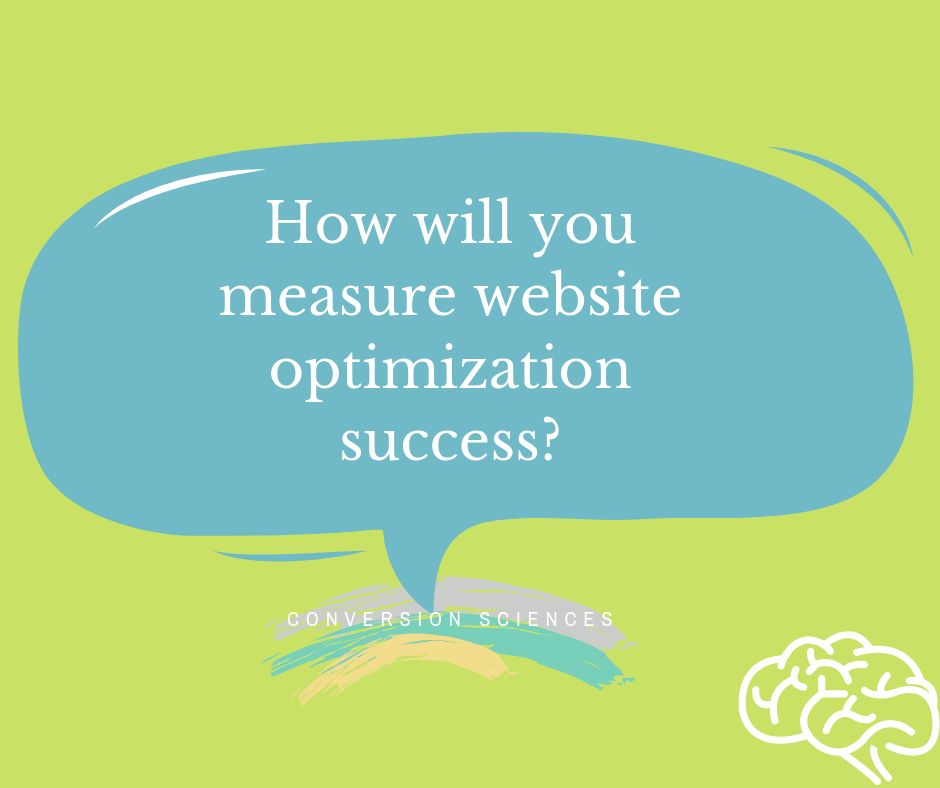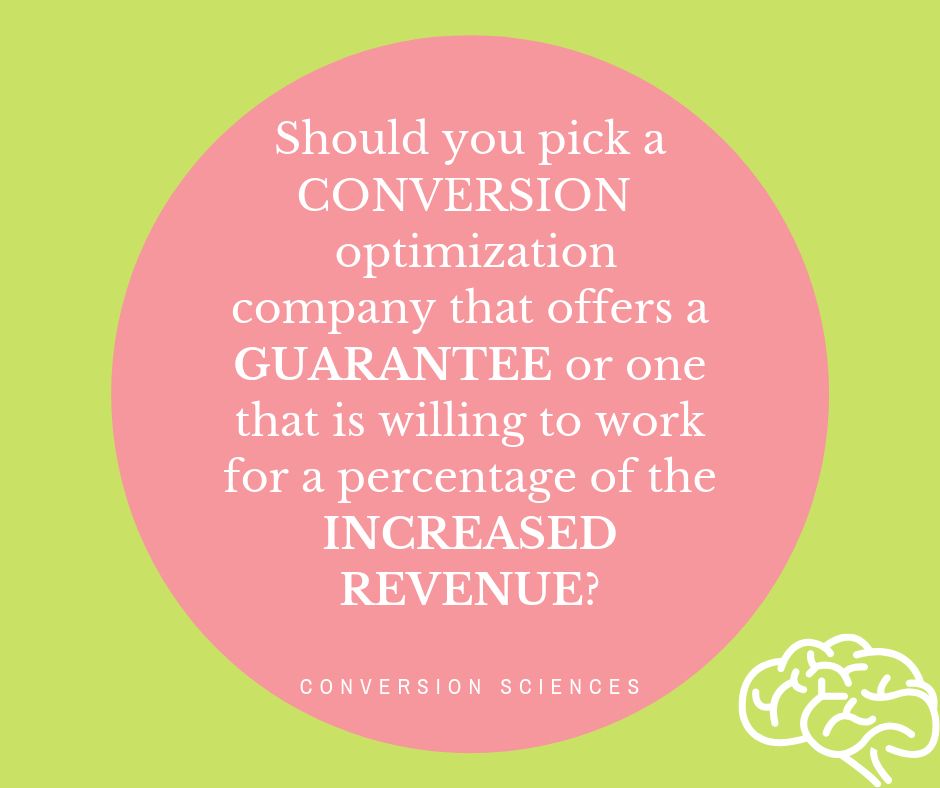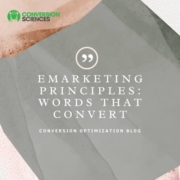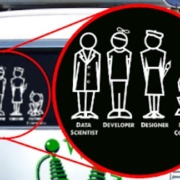How to Pick a Conversion Optimization Consultant for your Online Business
Here is a list of questions you may — and should — ask before you choose the best conversion optimization consultant for your online business.
Maybe you have exhausted your resources or maybe you’d rather have CRO experts maximize your profits. Whatever your situation, it’s time to pick a conversion optimization consultant for your online business, whether it’s eCommerce, lead gen or subscription website.
But how do you know which optimization professional is the best? Better yet, how do you know which one is the best fit for your needs?
Here are 14 key questions to consider when choosing our prospective conversion rate optimization (CRO) agency. Buckle up because here we go!
1. How Much will a Conversion Optimization Consultant Cost me?
Small conversion rate optimization firms can be found for as little as $2,500 per month to run tests. For a full team approach, expect to pay between $5,000 and $15,000 per month. Enterprise-focused firms will charge up to $50,000 per month.
Agencies that specialize in search engine optimization, paid search advertising, social media and media buying are adding conversion optimization services to their line card for a small fee because clients, like you, are asking for it.
Keep in mind, these agencies are not necessarily conversion specialists. They may be able to run AB ests, but the small fee they charge isn’t likely to impact your bottom line.
Know what you buy into.
When it’s time to pick a conversion optimization consultant for your online business, you have to understand what their offer actually is.

Do you know how your conversion rate optimization consultant measures success? A great question to ask when you are trying to choose the agency that best fits your website needs.
2. When Will I Start to See Positive Results and a Good Return on Investment
There are two main determinants of your ROI from conversion optimization:
- The average value of a conversion (transaction or lead).
- The number of conversions you have each month.
The more you make on each conversion, the more you will profit from increases in your conversion rate. The more conversions you have each month, the more ideas you’ll be able to A/B test during that month.
Your consultant should be able to help you estimate the relative return on your CRO investment.
Having said that, conversion optimization is an ongoing process, so it’s important to choose a consultant that can give you ongoing improvements in your conversion rates. After all, their job is to increase your revenues.
To find the answer to this question, ask the consultant about:
- Their experence, especially with companies similar to yours
- The number of ideas they will be able to work through
- Their process for choosing good ideas to test
3. Do I Need to Have My Own Resources? How Much Time Will I Have to Invest in This Project?
This will depend on the type of engagement you are looking for. For example, at Conversion Sciences, we offer our clients a couple of service options.
If they prefer to hand over the conversion rate optimization portion to us, we furnish them with a full CRO team. No company resources needed. Just plan to spend an hour with your conversion consultant each week on an ongoing basis and a bit more while we learn about your online business. Learn more about our Fully-Managed CRO Services here.
If they have an internal conversion team already in place, or they don’t have sufficient traffic to warrant full-time engagement, our clients can opt for our Conversion Rate Optimization Audit. This gives them a thorough analysis of their customer journey that they can use to develop their own experiments.
Our advice: Always ask this question. It will help you better compare and find the best CRO consultant for your website.
4. How Will You Measure Success?
This is a great question that can separate the wheat from the chaff. Let’s explain.
The best answer a CRO consultant can give you is, “We will improve bottom-line metrics such as leads generated, transactions, or subscribers and that’s how we will measure success.”
With this approach, the conversion consultant is incentivized to look at the bottom line as their measure of success. It also aligns the conversion consultant goals with your business goals.
Be careful of optimizing for secondary measures, such as clicks to a page with a form, bounce rate, the time visitors spend on your site or the number of pages they visit on average. It’s possible to improve these numbers without improving bottom-line metrics such as leads generated, transactions, or subscribers.
5. Can You Guarantee Results or a Conversion Rate Increase?
You may be evaluating conversion rate optimization companies that offers a guarantee as well as agencies that work for a percentage of the increased revenue.
While these seem like very tempting offers, they can give you very different experiences over time.
The most extreme guarantee is a pay-for-performance arrangement that boils down to, “I get a cut of your revenues.” On the plus side, the consultant doesn’t get paid if they don’t deliver higher revenues. On the downside, they may get credit for your own in-house promotions, which could raise your costs.
Another thing to remember is that, as revenues increase, this approach leads to higher monthly fees. If your conversion rates improve significantly, that’s good. But it means your consultant is getting paid very high fees. This can make you feel like you’re paying too much.
A variation to this is to pay your consultant only for revenue growth. However, if there is a period in which revenues do not grow, your consultant will be incentivized to pull resources away from your business just when you need them most.
Pay-for-performance may look good up-front. It has a built-in guarantee that reduces the risk of hiring a consultant you’re unfamiliar with. But we have found that it does little to properly align your goals with your consultant.
Would you like a better solution?
Consider asking the conversion consultant to continue working for free if a predetermined goal is not met in a set timeframe.
For example, if they can’t demonstrate a 10% increase in revenue in six months, they keep working for free. When they hit the results, they can start billing you again.
6. How Well Do You Know My Industry / Technology / Platform / Distribution Channel / Market?
If there’s one thing that testing teaches us very quickly, it’s that there is no such thing as a “magic formula.” Ideas that work for similar sites may not work on your audience. Every audience is different.
A conversion optimization consultant that has worked with a number of your competitors will have a playbook of ideas to consider. Many of these ideas never would have occurred to a team with less experience in your industry. If the consultant also know your website platform and technology, their learning curve will be limited mostly to your product, service or business brand.
Having said that, industry experience can also be a hindrance. If the conversion consultant is overly familiar with websites in your industry, they may not be able to look at your site with fresh eyes — a key advantage of external vendors.
All-in-all, a disciplined optimization process will work in any industry. Ask the consultant for some examples of novel ideas that are specific to your industry, but make sure they have a proven, repeatable process.
Before you pick a conversion optimization consultant for your online business, decide whether you are looking for a fresh pair of eyes, or for somebody that can quickly catch up and contribute as if they had always been a part of your team.
7. Can You Share Some Case Studies?
A case study will help you understand how the consultant helped other businesses improve conversion rates in lead generation, sales or subscriptions. If a case study shows giant performance gains, take it with a grain of salt. This can happen for you, but not always.
A consultant should be able to show you their case studies, but it’s a good idea to ask to speak with their clients as well.
The consultant will likely refer you to clients they’ve had success with, but it gives you a chance to ask about situations in which your conversion consultant struggled.
How a consultant deals with adversity is as important as how they behave when things are good.
8. How Will You Get to Know My Target Audience and What Is Your Process Like?
Successful conversion consultants will tell you that they let the data tell them about your audience. Your analytics data, surveys, reviews, and chat transcripts can reveal many issues with your website. If that is not enough, they will also use surveys, session recordings, heatmap reports, and A/B testing.
Any other answer from a CRO consultant could demonstrate that they do not have the optimization experience needed to perform the job.
Getting to know your target audience will be one of the first steps in the CRO process, but it’s important to underestand their entire process. If it isn’t outlined on their website, ask them to explain it to you.
In particular, you’ll want to know how much of your time will be spent supporting the on-boarding process and if there are any additional fees for software or special ad-hoc work.
9. Do You Do Split Testing or Can You Implement Personalized AI-Powered Experiences to My Visitors?
An experienced conversion rate optimization consultant will be well versed on every optimization technique and tool available and will recommend the one that is the best fit for your business.
Stay away from anyone who tries to steer you towards a single solution. For example, be wary of consultants that focus on A/B testing only. Many ideas can be validated or discarded without an A/B test. Ask about online panels, session recordings, heatmap reports, and eye-tracking studies for alternatives.
10. How Do You Know What to Optimize First?
The most important aspect of experimenting is the choice of ideas to focus on. Since it is easier to generate ideas than to test them, it’s important that the consultant have a process for evaluating and ranking ideas based on expected ROI.
There are a number of standardized ways to rank ideas. The most common framework is ICE, which stands for Impact, Confidence, and Effort. It helps collect and rank all of the ideas that come up when starting a conversion rate optimization project.
Consultants who rely primarily on heuristics, or best practices, rely on their own experience to decide what to test. This makes them little better than you at picking what to test.
Asking how they prioritize test ideas will weed out the weakest prospective vendors. After all, a solid understanding of methodologies demonstrates the kind of professionalism you are looking for.
Free Resource: Hypothesis Prioritization Framework
11. What Would You Like to Know About Our Company?
Good conversion optimizers will have lots of answers to this question.
They will be ravenous for any data you have, including things like chat transcripts, marketing research, surveys, personas, reviews, advertising data and more. That’s because conversion consultants are uniquely able to turn your existing research into test hypotheses.
Be suspicious of a consultant that doesn’t want to know more about YOUR business. Optimization professionals have inquisitive minds and they always want to know more. By giving them a chance to ask you questions, you can evaluate their curious nature and mental process.
12. Do the People I’ll Be Working With Have Strong Optimization Experience?
More than likely, you’ll have a chance to speak to the top people on the consultant’s team. But it’s important to know who will be assigned to your account.
- Are they experienced? How many years?
- If they are juniors, what type of supervision will the consultant provide?
- Does the person overseeing a junior optimizer have strategic marketing experiencee?
Conversion optimization is a challenging field. This is not a set of skills that is easy to teach in the classroom — which is why the consultant’s process matters.
Your consultant should be able to articulate a repeatable, proven process that has a history of positive results.
13. How Soon Will I See Results?
You will find a wide range of minimum engagements in the marketplace of CRO consultants. Some will take a chance and work with you on a month-to-month basis. Others will require a commitment of three months or more, up to twelve months.
If a consultant asks for no minimum, you should nevertheless ask them for a reasonable timeframe in which you can evaluate their results, a time at which they should be able to defend their performance.
The month-to-month consultant may be willing to take a chance on your website, but you can’t afford the loss of time if their gamble doesn’t pay off. Hold them to a timeframe, but we recommend giving them four months or more.
Most A/B tests are inconclusive. Beware of those who promise results within a short timeframe. CRO consultants should share previous and similar experiences, but they won’t be able to make claims about your returns until they start working with you.
Keep in mind, estimates and experience aren’t promises of future performance. No two websites or businesses are completely alike. The optimizers working on your website will need to gather and analyze lots of data before they can set realistic expectations.
14. Do You Work With the Tools We Own or Can Afford?
If you have already invested in conversion optimization tools, mention this in your first conversation. You will want your consultant to know you expect them to use your tools proficiently, or to have experience with similar tools from different vendors.
As far as affordability goes, we live in a golden age of marketing tools. There are many options at many price points. The consultant should be able to help you choose a tool that fits their needs and your budget.
Note: Most conversion consultants will give you a better return on your investment in optimization tools.

Here is a list of questions you may – and should – ask before you choose the best conversion optimization consultant for your online business.
In 2025, this questions goes to the top of the list. How are you using AI and how will you help me use AI to not get left behind?
15. What Is the Consultant’s Testing Philosophy?
Each consultant will have a testing philosophy. Some favor scientific rigor. Others favor quick decisions. Here are some questions to ask them, with the answers you will want to hear.
How long do AB tests take?
No AB test should be stopped before two full weeks have passed. If you have a high volume of conversions, one week may be acceptable, but no less. Read our AB testing guide here.
Will you stop a variation if it looks really negative?
Most conversion consultants will monitor tests and stop any variations that seem to be underperforming to avoid lost sales and fewer leads.
Do you let tests overlap?
If your prospective conversion consultant plans to run tests on multiple pages of your site, there is a risk of polluting the data and making bad calls. They should be able to keep visitors from one test getting into other tests on your site.
How do you do quality assurance on tests?
The tools used by a conversion consultant give them sweeping powers to alter your site. It is surprisingly easy to break your website with these tools. A thorough Quality Assurance (QA) process includes testing on multiple devices and involves several people before changes go live.
What kind of post-test analysis do you do?
Even if a test finishes and there is no winning variation, your conversion consultant can learn important things from the data.
Their knowledge of analytics will allow them to see how the test impacted other segments of your audience.
For example, it is common for an idea to impact desktop and mobile visitors very differently. The same is true for new visitors versus returning visitors.
This is called “post-test” analysis. It allows you to get even more value from every A/B test. This should be part of their capability.
Can you perform multivariate tests?
If you have a high-volume site, multivariate testing is a way to work through many design changes, discovering what combination is most impactful for a given website.
Multivariate testing is not appropriate for most businesses.
However, you should ask about the newer generation of AI-driven multivariate testing that uses machine learning to personalize your website in real time.
How to Pick a Conversion Optimization Consultant for Your Online Business
Final word of advice: no matter who you choose, make sure the consultant you hire is the one that is able to deliver on the strategy you need.
The best CRO agencies will tell you if they are unable to help you and may even recommend alternative solutions to your business problem.
Use these questions when you’re ready to pick a conversion optimization consultant for your online business. Who knows? It may even be us!













Leave a Reply
Want to join the discussion?Feel free to contribute!